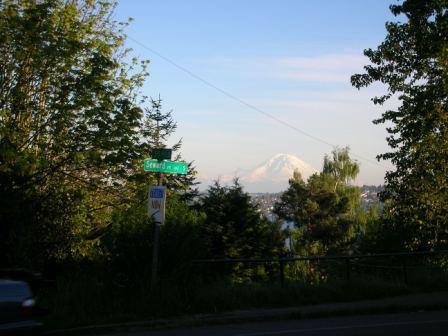“If you breathe air and drink water, this is about you.” – This Changes Everything
Almost all of my adult life, I’ve received the message that environmentalism isn’t for black people. Black people aren’t “outdoorsy.” (Don’t tell these folks!) We don’t camp (ahem) or hike or kayak, and we damn sure don’t mess with wildlife. And anyway, we don’t have time to worry about polar bears and glaciers when we can’t even walk home from the corner store without fearing for our lives.
But here’s the thing: Preserving the natural environment is critically important to black people — not just because we live on this planet with everyone else, but precisely because we are black.
Mainstream discourse causes us to think of “the environment” as some special, pristine place, far away from our day-to-day lives and immediate needs. This encourages us to believe that the only people who should concern themselves with environmental issues are people who have the luxury to focus on niche causes. In other words, white people.
In reality, our environment is directly connected to us. It is what we eat, drink, and breathe every day. What affects our air and water affects our health and well-being and our children’s ability to thrive.
In the United States, it is poor communities and communities of color that are most likely to experience the effects of pollution. Freeways are built through our neighborhoods, factories bury hazardous chemicals near our homes, and municipalities locate landfills in our backyards.
Often these polluting forces are brought with the promise of jobs, most of which are provided at the expense of our health — sometimes our very lives. More often than not, they are forced on us, because we do not have the money, political clout, or connections to stop them.
Natural disasters often disproportionately affect black people, both because we are more likely to be living in substandard housing and because the country as a whole just gives less of a damn about our well being.
On a global scale, the effects of climate change are not being distributed equally. The nations that will be most affected by climate change are in the global south, while the global north, which is largely responsible for the problem, sets emission targets that will protect its own people and then does nothing to meet even those.
So-called “developed” nations have built their wealth by appropriating resources from brown and black people across the world and by placing the disproportionate burden of their extractive, wasteful, greedy culture on those same people.
What this means is that we cannot truly improve the well-being of black and brown people without fundamentally changing the way we treat our environment. Rather than rejecting environmentalism as a hobby for people who already have everything, black folks should be at the very forefront of the movement to protect our planet and demand justice for its inhabitants.
This is not about buying recycled toilet paper or organic bed sheets. Certainly, individual choices have a role (though to be clear buying stuff is the exact opposite of what we need to be doing), but to counter the forces that are destroying us, we must build something bigger than our individual choices. We must come together as communities to protect our land and water. We must demand affordable, accessible transit service and safe places to walk and bike. We must insist on healthy, whole food grown sustainably. We must share with our neighbors.
We must refuse to accept rapacious corporations into our communities because they promise us a handful of jobs. Instead, we must insist that our young people be the first hired to build the sustainable, healthy, and safe communities of the future.
We no longer have the luxury of leaving environmentalism to others. As the tragedy in Flint makes painfully clear, our very lives depend on it.

